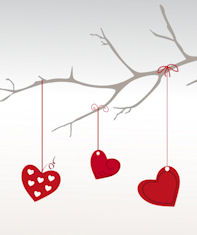 If you know what type of consultant relationship you want before you hire, you will be better able to evaluate the skills, approach, and personality of the consultant. Better evaluation means you will be much more likely to achieve your desired outcomes. Never underestimate the human element! Here are three fundamental relationship types to consider:
If you know what type of consultant relationship you want before you hire, you will be better able to evaluate the skills, approach, and personality of the consultant. Better evaluation means you will be much more likely to achieve your desired outcomes. Never underestimate the human element! Here are three fundamental relationship types to consider:
#1 – Restaurant Menu: Just Do It For Me!
Imagine it is a Friday night. You are tired after a long work-week and decide to take the family out to dinner at a local restaurant. You order pecan-crusted grouper on a bed of spinach and just as you are about to sip your glass of wine the chef appears at your side. He asks you, “Do you know how to get the pecans to stay encrusted? No? Do not worry! Come back to the kitchen in five minutes and I will show you.” Ummm. Not exactly what you had in mind. In fact, it would be irritating and awkward.
If you need a problem solved and you do not have the staff or resources to tackle it, you want a consultant to come in and do it for you. This consulting relationship is not unreasonable and can be a great way to get your organization moving forward.
As an example, you may need your donor database analyzed to determine best prospects for major gift and/or annual appeals. You know that there are consultants who can examine your database and make effective recommendations. You receive the ratings imported into your database and review the suggested prospect segments or groupings with the consultant. Then it is up to you to “eat” your “meal” – you need to engage and ask your donor prospects for gifts.
#2 – Cooking Class: Teach Me How To Do It Myself!
Now let’s imagine it is a Saturday morning and you arrive with your coffee in hand, ready for your cooking class. As you enter the classroom you discover the morning meal completely prepped and ready to go into the oven. You wonder, “How am I going to get my egg mixture fluffy like that next week when my in-laws are visiting?” And then, “Why did I pay for this class if I don’t learn how to make the dishes on my own?”
If you need to solve a problem that requires you to implement the solution on a regular basis, you want a consultant to walk you through how it works, using her expertise to shorten the time between learning and using your new skills. This kind of consulting builds your organization’s internal capacity by teaching staff valuable new skills.
As an example, you may be preparing for a campaign and want to be able to qualify major gift prospects as needed. The consultant trains your staff member how to do the research herself and creates a worksheet so that she can methodically establish a capacity rating and inclination rating to be entered in the donor database. Now the staff member can “cook” the “meal” with the same great results every time – she can prioritize new prospects quickly and effectively.
#3- Catering Instruction: Do It For Me and…Coach Me on Implementing!
Continuing with our food analogy, imagine you are hosting a big dinner party – your first ever! You hire a catering company. They arrive with all of the different courses cooked and ready. You and your spouse are given a list of all the foods and when they need to be served. But the best part is that they dress all the tables with linens and leave you with a server. She makes sure everything happens on time, prompting and reminding you along the way. Her expertise ensures all goes smoothly. Your party is a smashing hit!
Experienced fundraisers and managers know that having a consultant who can deliver a finished package and continue to coach on effective implementation can be the perfect solution. This kind of consulting gets the initiative up and running quickly, building the skills of the entire team along the way.
As an example, you need to transition from haphazardly securing major gifts to a major gifts program. The consultant analyzes your donor database, imports the ratings and works with you to develop a complete moves management system – rating, moves and reporting. Then she coaches you through the first year, tweaking the system and making suggestions to keep you on track. Your team has the “food cooked” and can efficiently “serve” it – your team has prospect management tools and they are methodically moving major gift prospects toward gifts.
Be aware of the kind of relationship you need and want to reach your goals. Then communicate that clearly as you interview a prospective consultant. It is the first step toward hiring the right person for you and your organization – someone you like and trust with the skills to get you to your destination.
Aspire Research Group has worked in all three types of relationships with clients, depending upon the problem to be solved. Do you have a prospect research problem and aren’t sure how to solve it? We would be happy to discuss it with you. Call 727 231 0516 or email jen at AspireResearchGroup.com.
Other blog posts that might interest you:
2 thoughts on “3 Consultant Relationship Types that Succeed: Which one for you?”
Comments are closed.